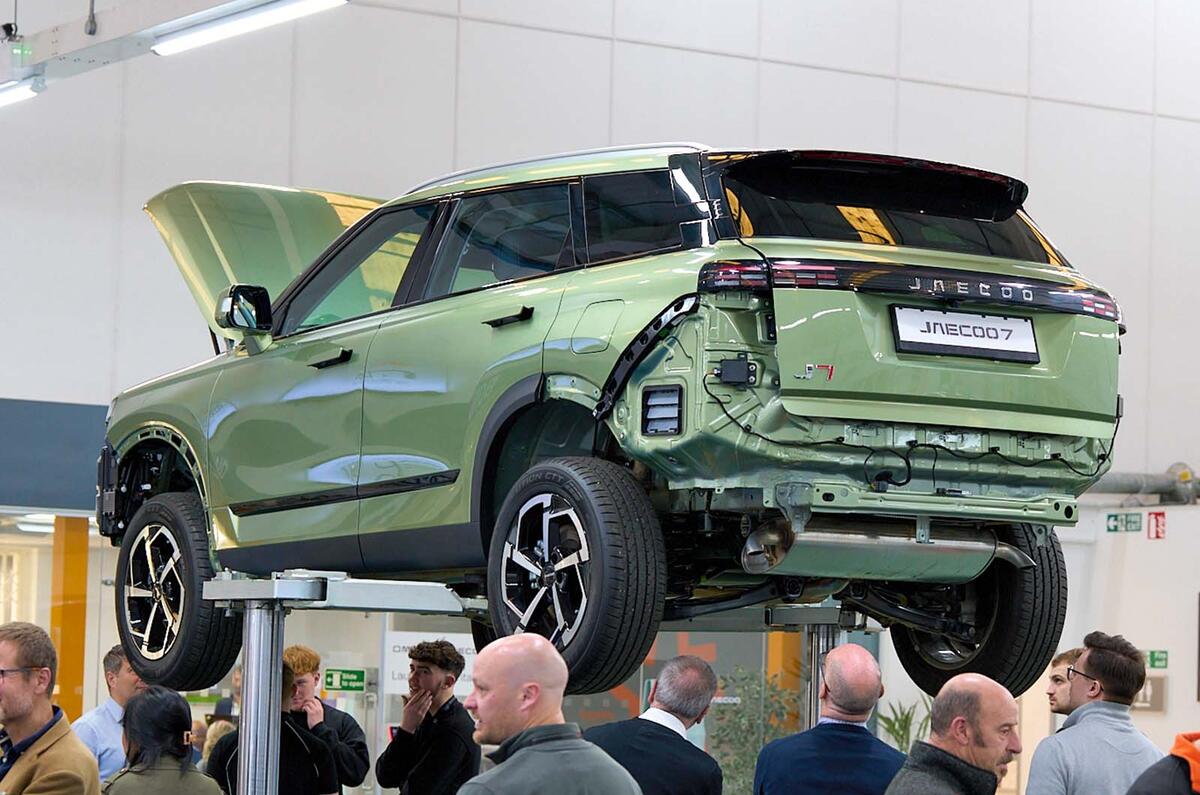Chinese newcomers Omoda and Jaecoo have teamed up with a leading insurer-backed organisation in a bid to avoid the aftersales issues that have plagued insurers and customers since their compatriots started entering the UK market.
In what is said to be an industry first, the “strategic partnership” between the Chery-owned duo and Thatcham Research has been created to support the design and development of existing and future models in areas concerning safety, security and sustainable and economic repair.
It comes after scores of Chinese-made cars were rejected for policies by UK insurers or written off because a lack of replacement parts made simple repairs too costly.
Ensuring good parts availability, facilitating faster repairs and installing more effective security measures pay dividends in terms of lower insurance costs and more satisfied customers, said Thatcham.
However, it continued, while Chinese car makers understand the principles of vehicle homologation and the safety standards demanded by Euro NCAP, they pay less attention to ease of repair, because car insurance in China is based on tariffs set and subsidised by the government.
Furthermore, the low labour costs in China mean Chinese insurers can afford to have lightly damaged large vehicle structures removed and replaced rather than repaired, as they would be in the UK.
In a move expected to be followed by other Chinese brands, Omoda and Jaecoo have taken several steps to make their UK-bound models more insurable.
These include redesigning the rear bumper structure of the Omoda 5 to make it easier to repair, reducing one-piece structures like front wings and body sides to more easily repairable sub-assemblies and creating more detailed and accessible body repair guides.
The two brands have also expanded technical support for their dealers and are currently training 100 technicians, they said.
In addition, they have amassed a parts inventory worth £3 million and forged a partnership with logistics giant DHL to provide next day delivery from a ‘centre of excellence’ in Rugby.
“Where more established car makers might say ‘we will make that change at the facelift ’, Omoda and Jaecoo have made many changes within just a few days and sometimes even overnight,” said Thatcham’s head of automotive, Ben Townsend. “We’ve never experienced that speed of reaction.”
In addition, a Thatcham certified locking wheel device will be applied to all UK-bound Omoda and Jaecoo cars at the factory, the keyless entry and start system will be protected from relay attack devices and a double-locking system will be applied.
Townsend added: “We recently met 25 car makers in China with plans to market their vehicles here and elsewhere in Europe, so I expect [this partnership] won’t be the last.”




Join the debate
Add your comment
So much for them ammassing a parts inventory. After a vehicle issue caused an accident in September 2025, our Omoda C5 has been off the road for over 5 months with no ETA on parts for repair form Omoda UK.
They've "amassed a parts inventory worth £3,000,000." So not a lot and, will soon run out...
“Omoda and Jaecoo have made many changes within just a few days and sometimes even overnight,” said Thatcham’s head of automotive, Ben Townsend.
And the testing on these changes? Sounds like a receipe for poor reliability.